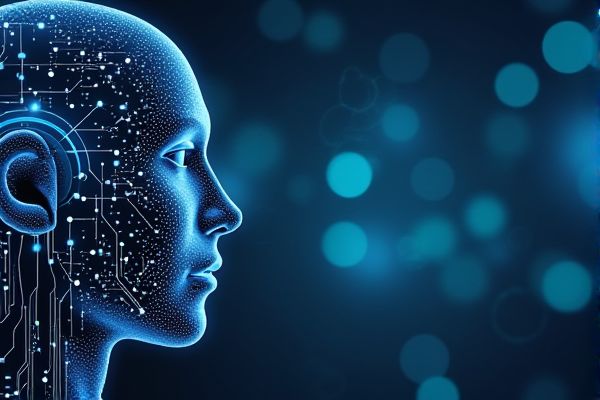
AI developments are transforming life sciences by enhancing drug discovery, improving diagnostic accuracy, and personalizing treatment plans. Machine learning algorithms analyze vast datasets, identifying patterns and predicting outcomes more efficiently than traditional methods. AI-powered tools streamline research processes, reducing the time and cost associated with clinical trials. Integration of AI in genomics facilitates a deeper understanding of diseases, enabling tailored therapies that improve patient outcomes.
AI usage in life sciences
Genomic Data Analysis
AI applications in life sciences, particularly in genomic data analysis, have the potential to enhance disease diagnosis and treatment options. Tools like DeepVariant can significantly improve the accuracy of variant calling in genomic sequences. This efficiency may lead to more personalized medicine approaches, tailoring treatments based on individual genetic information. The possibility of discovering novel biomarkers for disease also presents an advantage in early detection and intervention strategies.
Drug Discovery Acceleration
AI technology has the potential to significantly accelerate drug discovery by analyzing vast datasets to identify promising compounds. Machine learning algorithms can predict the interactions between drugs and biological targets, enhancing the efficiency of the screening process. Institutions like MIT have begun integrating AI models to streamline research efforts and reduce the time required for clinical trials. This approach could lead to more effective therapies reaching the market faster, ultimately benefiting patients and healthcare systems.
Personalized Medicine
AI can enhance personalized medicine by analyzing large datasets to identify tailored treatment options for patients. For example, algorithms can evaluate genetic information to determine the most effective therapies for specific diseases. This approach increases the likelihood of successful outcomes while minimizing adverse effects from ineffective treatments. Institutions like the Mayo Clinic are exploring these possibilities to improve patient care and outcomes.
Disease Diagnosis Accuracy
AI technologies can enhance disease diagnosis accuracy in life sciences significantly. For instance, machine learning algorithms can analyze medical images, improving the identification of conditions such as cancer. Institutions like Mayo Clinic are increasingly integrating AI to streamline diagnostic processes, potentially reducing human error. These advancements suggest a chance for early detection and better patient outcomes.
Patient Data Privacy
AI can enhance patient data analysis in life sciences, allowing for more accurate predictions and tailored treatments. Institutions like Mayo Clinic are leveraging AI to improve patient outcomes while maintaining data privacy protocols. The potential for AI to streamline drug discovery processes also presents an opportunity for significant advancements in therapeutic options. As regulations evolve, the chance for AI to balance innovation with patient confidentiality becomes increasingly viable.
Biomedical Image Processing
AI can significantly enhance biomedical image processing by improving accuracy in diagnosing diseases through advanced image analysis techniques. For instance, algorithms can analyze MRI scans to detect anomalies that might be missed by the human eye, potentially leading to earlier interventions. This technology offers the possibility of reducing time and costs associated with manual analysis in institutions like hospitals. The likelihood of achieving better patient outcomes increases as AI continues to evolve in this field.
Clinical Trial Optimization
AI can enhance clinical trial optimization by analyzing vast amounts of patient data to identify suitable candidates faster. For instance, using AI algorithms, institutions like Johns Hopkins can streamline the recruitment process and reduce costs. Furthermore, AI can predict outcomes based on historical data, increasing the likelihood of successful trial results. This can ultimately lead to shorter timelines for bringing new drugs to market, benefiting both researchers and patients.
Predictive Analytics in Epidemiology
AI usage in life sciences can improve predictive analytics in epidemiology by enhancing the accuracy of disease outbreak forecasts. For instance, institutions like the Centers for Disease Control and Prevention utilize machine learning algorithms to identify patterns in health data. This technological advancement increases the likelihood of timely interventions and resource allocation during public health emergencies. Consequently, harnessing AI could lead to improved health outcomes and more efficient management of disease control strategies.
Virtual Health Assistants
Virtual Health Assistants can enhance patient engagement and streamline communication in healthcare settings. By leveraging AI technology, these tools provide personalized health information and reminders, which can improve adherence to treatment plans. Institutions like Mayo Clinic are exploring AI-driven solutions that aim to optimize patient experiences and outcomes. This innovative approach holds the potential to reduce healthcare costs while expanding access to quality care.
Bioinformatics Automation
AI has the potential to enhance bioinformatics automation by streamlining data analysis processes. For instance, researchers at institutions like Stanford University are utilizing machine learning algorithms to interpret genetic data more efficiently. The integration of AI can lead to faster identification of biomarkers, which could significantly improve disease diagnosis. Automated systems powered by AI can also reduce human error, increasing the overall accuracy of research outcomes.
 techknowy.com
techknowy.com